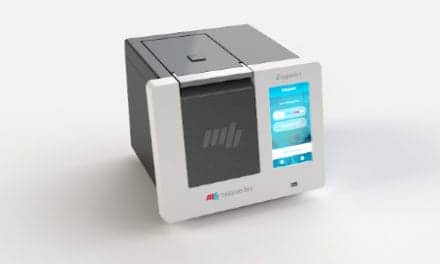Myriad Genetics Inc, Salt Lake City, has announced the publication of results from a landmark study of variant reclassifications following hereditary cancer genetic testing.1
“This is the first large, robust study to quantify the prevalence of variant reclassification of hereditary cancer testing in a large commercial laboratory, underscoring Myriad’s commitment to advancing the science of genetic testing,” says Susan Manley, CGC, MBA, vice president of medical services at Myriad. “Importantly, this study underscores the need for clinicians to use a clinical laboratory that provides timely variant reclassification information to ensure appropriate medical care of patients and their relatives.”
The study was a retrospective examination of test results from individuals who underwent genetic testing from 2006 through 2016 at Myriad Genetics. Genetic variants were classified as benign, likely benign, variant of uncertain significance, likely pathogenic, or pathogenic.The primary objective of the study was to measure the frequency and types of variant reclassification.
The results showed that 1.45 million individuals underwent genetic testing during the 10-year study period and 59,955 amended reports were issued due to variant reclassification. Importantly, 25% of all reported variants of uncertain significance were reclassified, with 91% downgraded to benign or likely benign, and 9% upgraded to pathogenic or likely pathogenic.
“The implications of this study are three-pronged,” says Theodora Ross, MD, PhD, professor of internal medicine at the University of Texas Southwestern Medical Center and senior author of the study. “Physicians need to be aware of how rapidly knowledge about gene variants is advancing and that reclassifications are common. Labs need to review gene variant information on a regular basis and alert physicians to changes. Finally, patients and their family members need to be made aware of reclassifications by their physicians so they can make well-informed choices.”
Myriad is unique in addressing these three goals through its proprietary myVision variant classification program, which employs multiple methods for variant interpretation to ensure that patients and their physicians receive the latest in scientific advances. In the past year, Myriad has issued more than 20,000 amended test reports involving the reclassification of uncertain variants.
“Myriad’s commitment to provide the most accurate testing doesn’t stop when patients receive their initial test result,” says Manley.“We offer Myriad patients and their families a commitment that lasts a lifetime.”
For further information visit Myriad Genetics.
Reference
- Mersch J, Brown N, Pirzadeh-Miller S, et al. Prevalence of variant reclassification following hereditary cancer genetic testing. JAMA. 2018;320(12):1266–1274; doi: 10.1001/jama.2018.13152.
Featured image: Kelch-like protein 3, a protein in humans that is encoded by the KLHL3 gene. Alternative splicing results in multiple transcript variants encoding distinct isoforms. Illustration 84899965 © ibreakstock courtesy Dreamstime.com.





